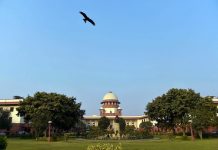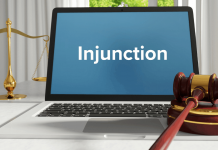This article is authored by Nidhi Bajaj, of Guru Nanak Dev University, Punjab. The article will take you through the various judgements dealing with the question of withdrawing of admissions by way of amendment in written statements.
This article has been published by Rachit Garg.
Table of Contents
Introduction
Order VI of the Code of Civil Procedure Code, 1908 deals with ‘pleadings’. Pleadings refer to the plaint filed by the plaintiff or the written statement filed by the defendant. Many a time circumstances may arise which necessitate a party to amend his or her pleading before or during the trial, for example—
- Fresh information has come to the knowledge of the party
- Some document not known to be in existence has been found
- The opponent has raised some well-founded objections to your pleadings
In this article, the author will be dealing with the following two questions—
- What are the rules relating to the amendment of pleadings?
- Whether admission made by the defendant can be permitted to be withdrawn by way of amendment of his written statement?
Amendment of the written statement
The rules relating to the amendment of written statements are included in Order VI, rule 17-18 of the Civil Procedure Code 1908.
Order 6, rule 17: amendment of pleadings
Discretionary power of the court
Rule 17 confers discretion on the court to allow either party to amend his pleadings at any stage of the proceedings in such manner and on such terms as may be just.
All such amendments that are necessary for the purpose of determining the real questions in controversy between the parties are to be allowed.
Restriction on court’s power to allow amendment
An amendment may be granted at any stage of the proceeding be it before, during or after the trial, in appeal or in revision or before the Supreme Court. However, Proviso to Rule 17 provides that no application for amendment shall be allowed after the commencement of the trial unless the Court comes to the conclusion that the party could not have raised the matter before the commencement of the trial in spite of due diligence.
When can leave to amend be granted or refused
Grounds for granting leave to amend
Leave to amend is usually allowed in the following cases:
- The main test to determine if an amendment should be allowed or not is to see whether such amendment is necessary for determining the real question in issue between the parties.
- Where an amendment can be allowed without doing injustice to the other party. This means that no amendment is to be allowed which causes injustice to the other party unless such injustice can be compensated by costs.
- Where amendment will cause no injury to the opposite party and where such injury can be sufficiently compensated by money.
- For granting consequential relief.
- To avoid multiplicity of proceedings.
- To clarify the pleadings.
- Where such amendment is of formal nature.
- For allowing misdescription of parties to be corrected etc.
When leave to amend can be refused
It is a discretionary power of the court to allow the amendment of pleadings. However, such power has to be exercised judicially and in a reasonable manner. Leave to amend is generally refused in the following cases:
- Where the amendment proposed fails to pass the ‘real controversy’ test i.e. it is not necessary for determining the real question in controversy between the parties.
- When an amendment introduces an altogether different or new case that is inconsistent with the suit or changes the fundamental character of the suit or defence. For example, A plaintiff’s suit was based on the premise that the suit property was non-ancestral and an issue regarding the character of property was framed and evidence was led. A finding was recorded that the property was non- ancestral. Thereafter, the plaintiff’s application for the amending of the plaint alleging that the property was ancestral at the appellate stage cannot be allowed.
- Where the amendment, if allowed would take away a legal right accrued in favour of the opponent.
- Where an application to amend is not in good faith and has been made with a malafide intention.
It has to be kept in mind that amendment will generally be allowed where it causes no injustice to the other party or where it can be made without prejudice to the other party. The Court may allow an amendment of a plaint or written statement in the interest of justice or to preserve the rights of both the parties.
Other considerations
Notice to the opposite party
In case an application for amendment of the plaint or written statement is filed, a notice should be given to the opposite party to file an objection against it. He should also be given an opportunity of being heard. However, where the amendment is of a purely formal or technical nature, such notice is not necessary.
Recording of reasons
The court should record its reasons for allowing or rejecting the application for amendment of pleadings.
Order VI, rule 18: Failure to amend after order
Rule 18 provides that where the order for leave to amend has been granted by the court and after obtaining such order, he fails to amend his pleading within the time specified by the court and if no time is specified, within 14 days from the date of the order, he shall not be thereafter permitted to amend his pleading on expiry of such time period, unless the time is extended by the Court.
Relevant Case Laws
Modi Spinning & Weaving Mills Co. v. Ladha Ram & Co (1976)
Brief facts
In this case, the defendants had admitted in their written statement that the plaintiff worked as their Stockist-cum-Distributor. After three years, they filed an application under Order VI, Rule 17 to amend the written statement to substitute their earlier plea with a fresh plea that the plaintiff was a mercantile agent-cum-purchaser. The trial Court rejected the application and the decision was confirmed in revision by the High Court.
Decision of the Supreme Court
The Hon’ble Supreme Court dismissed the appeal by special leave filed by the defendant and held that it is true that inconsistent pleas can be made in pleadings but the defendants cannot be allowed to completely change the case and substitute it with an entirely different and new case. The Court held that the substitution as proposed by the defendant seeks to displace the plaintiff completely from the admissions made by the defendants in the written statement. If such substitution is allowed by way of the amendment, then the plaintiff will be prejudiced by being denied the opportunity of extracting the admission from the defendants.
Usha Balashaheb Swami & Ors v. Kiran Appaso Swami & Ors (2007)
Brief Facts
The plaintiff-respondent had filed a suit for partition and separate possession of suit properties. The defendant nos. 1 to 7 who were respondents no. 2 to 8 in this appeal filed their written statement in which they supported the case of the plaintiff. The appellants i.e. Defendant No. 8-14 filed their written statement in which they admitted that the plaintiff with defendants No.1 to 7 was entitled to one-half share in the suit properties. Defendant No. 8-14 filed an application for amendment of their written statement to add that the plaintiff and defendant Nos. 2 to 7 could not acquire right, title and interest in the joint family properties, as they were the illegitimate children of the deceased Appasao. The plaintiff contested the application on the ground that the appellants have admitted in their written statement that plaintiff and defendant Nos.1 to 7 were jointly entitled to a half share of the suit properties and hence they cannot be allowed to withdraw such admission by amendment of the written statement. The application for amendment was granted by Learned Civil judge, but his order was set aside by the High Court in revision. A special leave petition was filed in the Supreme Court against the order of the High Court.
Decision of the Supreme Court
The Hon’ble Court set aside the order of the High Court of rejecting the application for amendment and allowed the amendment of a written statement. The Court held that a prayer for amendment of plaint and amendment of the written statement stands on a different footing and the Courts have to be more liberal while dealing with the application for amendment of a written statement. The general principle that amendment of pleadings cannot be allowed to materially alter or substitute the cause of action applies to plaints and not to written statements. The Court observed that adding a new cause of action or substituting it may be objectionable in case of plaint but adding a new ground or taking inconsistent pleas or new defence in a written statement would not be objectionable. The Court also held that it was not a case of withdrawing of admissions by the defendant but only adding additional facts. By proposing amendment of written statement appellants were not withdrawing admission but only added that the plaintiff and defendant nos. 3 to 8 could be entitled to half a share in the property if they proved to be the legitimate children of Appasao.
B.K-Narayana Pillai v. Pararneswaran Pillai & Anr (1999)
Brief Facts
In this case, the respondent-plaintiff filed a suit for the grant of mandatory and prohibitory injunction against the appellant-defendant seeking his eviction on the ground that he was a licensee. The appellant-defendant in his written statement pleaded that he was a lessee and not a licensee. The defendant filed an application for amendment of the written statement:
- For adding an alternative plea that in case the Court found that the defendant was a licensee, he was not liable to be evicted as according to him the license was irrevocable.
- For adding that the first and second prayers in the plaint are barred by limitation and that acting upon the license he has executed works of permanent nature and incurred expenses in execution of the same so his license cannot be revoked by the grantor under Section 60(b) of the Indian Easements Act. 1882
The application of the defendant was rejected by the trial Court and the High Court as being mutually destructive and on the ground that it would amount to permitting the defendant to withdraw admission made by him in the main written statement. The appeal was filed before Supreme Court.
Decision of the Supreme Court
The Court allowed the appeal and held that the principles applicable to the amendment of the plaint are equally applicable to the amendment of the written statement. The Court held that the pleas sought to be raised by amendment of written statement are neither inconsistent nor repugnant to the pleas already raised in defence. The alternative plea sought to be incorporated is only an extension of the plea already raised and the mere fact that there was a prolonged delay in filing the application cannot be a ground for rejecting it particularly when the respondent-plaintiff could be compensated by costs. The Court also held that:
- The defendant has a right to take an alternative plea by amending his written statement except where such amendment would cause injustice to the other party and would amount to withdrawing any admission made in favour of the plaintiff.
- Amendments necessary to determine the real controversy in the suit must be allowed provided that the proposed amendment does not alter or substitute an entirely new cause of action in the suit as originally filed or defence originally taken.
- Allegations that are inconsistent or contrary to the admitted position of facts or mutually destructive allegations of facts should not be allowed by way of amendment of pleadings.
- Amendment proposed by a party should not cause any such prejudice to the opponent which cannot be compensated by costs.
- No amendment should be allowed which amounts to defeating a legal right accruing to the opposite party on account of lapse of time. Delay in filing applications for amendment of pleadings should be properly compensated by costs.
Muhamed Ashraf v. Fasalu Rahman(2021)
Facts
In this case, a suit was filed seeking the cancellation of two assignment deeds registered by the respondent in favour of the petitioner. After filing of written statement by the petitioner-defendant, respondent-plaintiff amended the plaint. Then the petitioner filed an additional written statement. Later, when the case was listed for trial, the petitioner filed an interlocutory application seeking to amend the written statement. The Trial Court dismissed the application for amendment holding that the petitioner was trying to withdraw his admissions and incorporate new contentions. Thereafter, this original petition was filed before High Court.
Decision of the Kerala High Court
Dismissing the original petition, the High Court held that the trial Court was right in rejecting the application for amendment. It was observed by the Court that a written statement cannot completely displace the former admissions made before the amendment. The Court held that the proviso to Rule 17 of Order VI CPC would apply in the case as an application for amendment was filed after filing of an affidavit in lieu of chief examination was filed. As the application was filed just prior to the date fixed for trial, there was no doubt that substantial prejudice would be caused to the plaintiff.
Other Cases
Uttam Chand Kothari v. Gauri Shankar Jalan And Ors. (2006)
Following questions came for consideration in a writ petition before the Gauhati High Court:
- Whether an admission made by a defendant in his written statement can be allowed to be withdrawn by way of amendment?
- While allowing such amendment of a written statement, is there any difference between an ‘express admission’ and an ‘implied admission’?
- Can a lawyer’s incorrect instructions, omission or failure leading to the making of an implied or express admission, in a written statement, be allowed to be withdrawn by way of amendment? If not, what is the remedy for such a defendant?
A writ petition was filed under Article 227 challenging the order of dismissal of application for leave to amend the written statement. The High Court observed that it is settled by various judgements of the Supreme Court that admissions, made in a written statement, cannot be allowed to be withdrawn by way of amendment, be the admissions express or implied. An amendment that seeks to completely displace the plaintiff from admissions made by the defendant in his written statement cannot be allowed.
- Answering the first issue, the Court held that no admission made in favour of a plaintiff can be allowed to be withdrawn by amendment.
- Regarding the second issue, the Court held that while allowing or refusing amendment, there is no distinction between express and implied admission. An implied admission made in a written statement is also binding on the party making the admission. Such admissions constitute waiver of proof and cannot be permitted to be withdrawn by way of amendment of the written statement.
- While deciding the third issue, the Court disagreed with the views expressed in the case of Mahendra Radio and Television, Meerut v. State Bank of India(1988), that an admission made erroneously due to fault of advocate can be allowed to be withdrawn even if the effect of such an amendment is to take away the admission made. The Court held that when the counsel’s default leads to an implied or express admission, then the remedy for the defendant is to make out a case for the court to exercise its powers under the proviso to Rule 5 of Order 8 and insist upon the plaintiff to prove his case notwithstanding the admission implied or express made in the written statement.
Heeralal v. Kalyan Mal & Ors (1997)
In this case, the Supreme Court reiterated that an admission made in a written statement cannot be allowed to be withdrawn by way of amendment of the written statement on the ground that a defendant is entitled to take inconsistent or alternative pleas.
Ram Niranjan Kajaria v. Sheo Prakash Kajaria & Ors(2015)
In this case, the question involved was whether a defendant in a suit for partition can be permitted to withdraw an admission made in the written statement after a long period. The Supreme Court held that once admission is made by the defendant relinquishing his claim in joint family property, seeking withdrawal of admission after 25 years cannot be allowed but the defendants should be allowed to explain or clarify the admissions made in the written statement.
Conclusion
The law relating to the amendment of written statements and whether such amendment can be permitted to withdraw an admission made in the written statement is almost settled. The court has the power to allow amendment of a written statement, however, the power must be exercised keeping in mind the well-established principles of law and the due-diligence test as provided under the Proviso to Rule 17 of Order VI.
References
- The Code of Civil Procedure, 1908, C.K. Takwani, Eighth Edition
- https://www.google.com/url?sa=t&source=web&rct=j&url=https://www.livelaw.in/pdf_upload/muhamed-ashraf-v-fasalu-rahman-400619.pdf&ved=2ahUKEwic_qXM1rj0AhXnUGwGHVisCXoQFnoECBEQAQ&usg=AOvVaw2pfplta9yphwM761G4ITaa
LawSikho has created a telegram group for exchanging legal knowledge, referrals and various opportunities. You can click on this link and join:
https://t.me/joinchat/L9vr7LmS9pJjYTQ9
Follow us on Instagram and subscribe to our YouTube channel for more amazing legal content.
 Serato DJ Crack 2025Serato DJ PRO Crack
Serato DJ Crack 2025Serato DJ PRO Crack











 Allow notifications
Allow notifications


